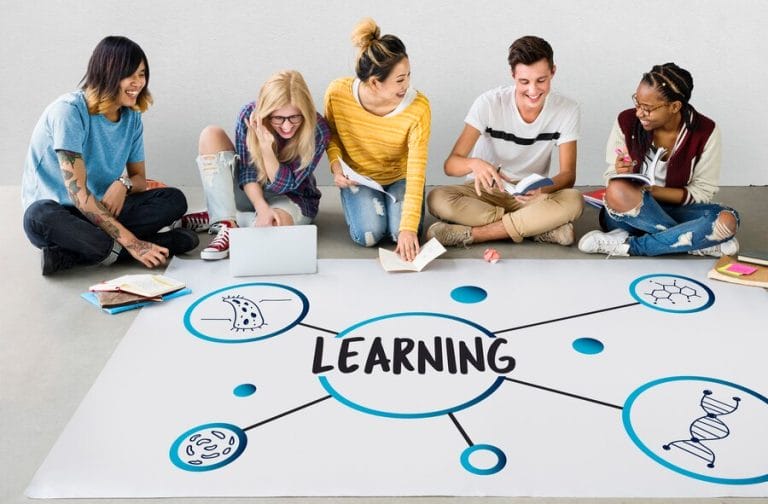The Potential of AI in Personalized Learning
October 29, 2024 2024-10-25 10:50
The Potential of AI in Personalized Learning
The application of Artificial Intelligence (AI) in personalized learning is transforming traditional educational systems. As AI technology continues to advance, it provides the tools necessary to create custom educational experiences tailored to individual learning styles, paces, and abilities. By leveraging machine learning algorithms, data analytics, and adaptive technologies, educators can enhance the way knowledge is imparted to students, ultimately fostering better engagement, comprehension, and retention.
What is Personalized Learning?
Personalized learning is an educational approach designed to address each student’s unique needs. It customizes learning experiences based on individual pace, interests, and goals, creating an environment where students have greater control over their learning paths. Traditionally, education has been more generalized, with a one-size-fits-all approach. However, personalized learning allows for:
- Student-centered learning: Students take an active role, choosing learning pathways that align with their personal goals.
- Flexible pacing: Learning progresses based on the student’s ability rather than a rigid schedule.
- Adaptable content: The curriculum and materials adjust based on the learner’s progress and understanding.
The Role of AI in Personalized Learning
AI plays a pivotal role in enabling personalized learning by facilitating real-time adaptability, interactive experiences, and individualized feedback. AI applications such as adaptive learning platforms, AI-driven assessment tools, and virtual tutors allow educational systems to meet the diverse needs of learners efficiently.
- Data-driven insights: AI collects and analyzes data to better understand students’ strengths, weaknesses, and preferences. This helps teachers identify specific areas where each student may need additional support.
- Adaptive learning environments: By using AI algorithms, educational platforms adjust the difficulty of lessons, provide targeted feedback, and recommend resources that best suit the learner’s current level.
- Intelligent tutoring systems (ITS): AI-powered virtual tutors provide personalized support by responding to students’ questions, offering explanations, and guiding them through difficult concepts.
How AI Personalizes the Learning Experience
The transformative power of AI lies in its ability to create dynamic, interactive, and engaging learning experiences that go beyond the limitations of traditional classrooms.
1. Tailored Content and Adaptive Learning
AI’s use of data allows for the adjustment of content delivery based on the learner’s performance, preferences, and progress. Adaptive learning software analyzes student data in real time and provides tailored exercises, resources, and assessments based on the individual’s strengths and weaknesses.
- Learning pace adaptation: AI adapts the content delivery pace to suit the learner’s speed, enabling faster learners to move ahead while supporting slower learners with additional resources.
- Skill gap identification: AI identifies areas where students struggle and automatically provides resources or exercises to help bridge knowledge gaps.
- Real-time progress tracking: AI continually assesses the student’s performance and progress, adjusting the learning path accordingly.
2. AI-Driven Feedback and Assessment
Feedback and assessment are crucial components of personalized learning. AI offers immediate feedback to students, helping them understand their mistakes and reinforcing learning at each step.
- Automated assessments: AI can handle large volumes of data, allowing for quick and accurate grading of assignments, quizzes, and tests.
- Error analysis: Through analysis of incorrect answers, AI identifies patterns in students’ mistakes, providing specific feedback and helping them learn from errors.
- Formative assessments: AI tools allow for ongoing assessments, which are more focused on tracking learning progress and identifying areas for improvement.
3. Intelligent Tutoring Systems (ITS)
Intelligent tutoring systems powered by AI can serve as virtual tutors, providing explanations, answering questions, and offering additional practice when needed.
- 24/7 support: Virtual tutors offer assistance anytime, allowing students to learn independently at their convenience.
- Question answering and explanations: AI tutors interact with students, answering questions in real time and providing clear explanations to clarify complex topics.
- Guided practice: AI tutors guide students through exercises, reinforcing skills through practice and supporting students in achieving mastery.
4. Enhanced Student Engagement
AI-enhanced learning tools make educational content more interactive and engaging, capturing students’ interest and encouraging active participation.
- Gamification: AI-based learning platforms often incorporate game-like elements such as points, badges, and challenges to make learning more enjoyable.
- Interactive content: AI enables the creation of interactive quizzes, simulations, and real-world problem-solving tasks, making learning more engaging.
- Virtual and augmented reality: AI in education can integrate virtual and augmented reality to create immersive learning experiences, making complex subjects like science and engineering easier to grasp.
5. Support for Diverse Learning Needs
AI enables educators to cater to the needs of students with varied learning abilities and disabilities, creating more inclusive learning environments.
- Assistive technologies: AI-driven tools support students with disabilities by offering speech-to-text, text-to-speech, and screen-reading capabilities.
- Customized instruction for neurodiverse learners: AI provides personalized learning paths and adjustments to accommodate neurodiverse students, helping them engage with material in a way that suits their needs.
- Language support for ESL learners: AI offers translation tools, language learning resources, and adaptive instruction for English as a Second Language (ESL) students.
Challenges and Ethical Considerations in AI-Driven Personalized Learning
While the potential benefits of AI in education are significant, there are also challenges and ethical considerations to address.
1. Data Privacy and Security
AI in personalized learning requires access to vast amounts of student data to generate insights and tailor learning experiences. Protecting this data is crucial to prevent privacy breaches and misuse.
- Data privacy regulations: Compliance with data protection laws, such as GDPR and FERPA, is essential to safeguard student information.
- Secure storage and encryption: Educational institutions and technology providers must use secure methods to store and encrypt student data.
- Parental and student consent: Transparency in data collection and ensuring parental and student consent for data use is critical.
2. Potential Bias and Fairness
AI systems may inadvertently reinforce biases present in the data used for training. Ensuring that AI-driven educational tools are unbiased and fair is essential.
- Inclusive training data: AI algorithms should be trained on diverse data sets to prevent reinforcing stereotypes or biases.
- Regular auditing: Educational institutions must audit AI systems regularly to detect and address any biases in content recommendations or assessments.
- Algorithmic transparency: Providing transparency around how AI algorithms make decisions can help educators understand and trust AI recommendations.
3. Teacher-Student Interaction
While AI can assist with personalized learning, it cannot replace the human connection and mentorship that teachers provide. A balance between AI tools and teacher-student interaction is essential for holistic learning.
- Supplement, not replace: AI should be used as a supportive tool to enhance, not replace, teacher instruction.
- Teacher oversight: Teachers should have oversight of AI-generated recommendations, enabling them to adjust and provide additional support where necessary.
- Maintaining personal connections: Building relationships and offering emotional support are crucial elements of teaching that AI cannot replicate.
The Future of AI in Education
The integration of AI in education, particularly in personalized learning, is expected to grow as technology advances. With the potential to provide tailored learning experiences, AI can transform how students engage with education, paving the way for more inclusive and effective learning environments.
- Increased accessibility: As AI tools become more widespread and affordable, personalized learning can reach students from diverse backgrounds and learning abilities.
- Continuous improvement of AI algorithms: As AI algorithms become more sophisticated, they will be better equipped to analyze complex data, providing even more precise recommendations and support.
- Partnerships between AI developers and educators: Collaboration between technology experts and educators is essential to ensure AI tools align with educational goals and ethical standards.
Key Points to Remember
- Personalized Learning: AI enables tailored content, flexible pacing, and student-centered learning paths.
- Adaptive Learning: AI adjusts material difficulty and provides targeted resources based on individual progress.
- Real-Time Feedback: AI delivers immediate feedback, enabling students to learn from mistakes instantly.
- Intelligent Tutoring: AI-based tutors offer 24/7 support, answering questions and guiding students through challenges.
- Engagement: Gamification, interactivity, and immersive tools make learning more engaging.
- Inclusivity: AI supports diverse learners, from neurodiverse students to ESL learners, through customized adjustments.
- Data Privacy and Ethics: Privacy, bias, and ethical use of AI in education must be carefully managed.
- Future Growth: As AI advances, personalized learning has the potential to become more accessible and effective.
AI-driven personalized learning represents a powerful tool for the future of education. It offers a tailored, inclusive, and engaging approach to learning that meets the unique needs of every student. As educators and technology experts continue to innovate, AI will likely play an integral role in shaping the educational experiences of tomorrow.
For more on the transformative potential of AI in education, watch this
By: Daniela Febres
Related Posts
The Potential of AI in Personalized Learning
October 29, 2024 2024-10-25 10:50Popular Tags





























